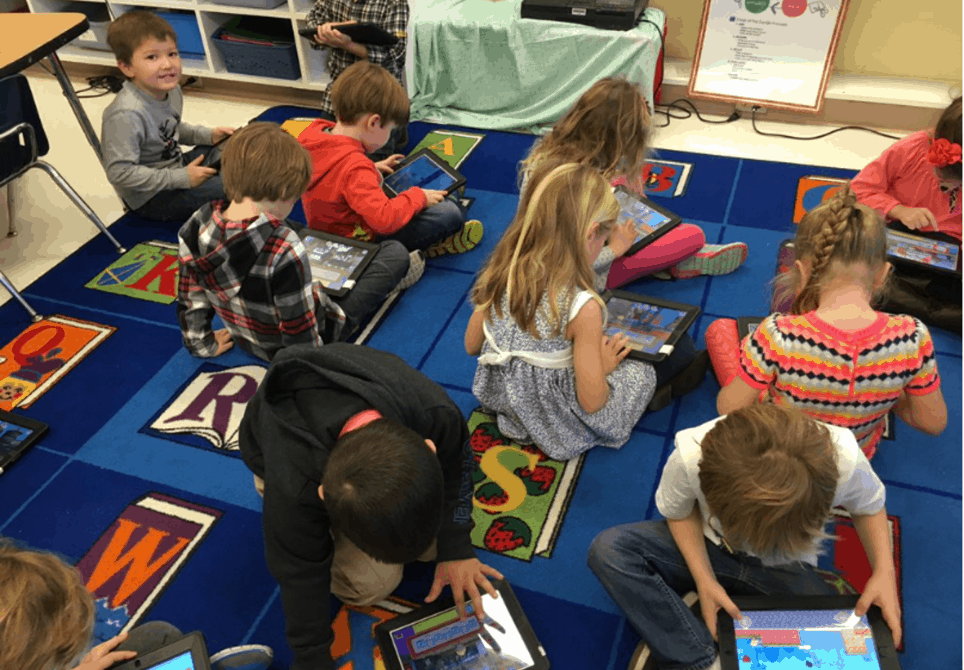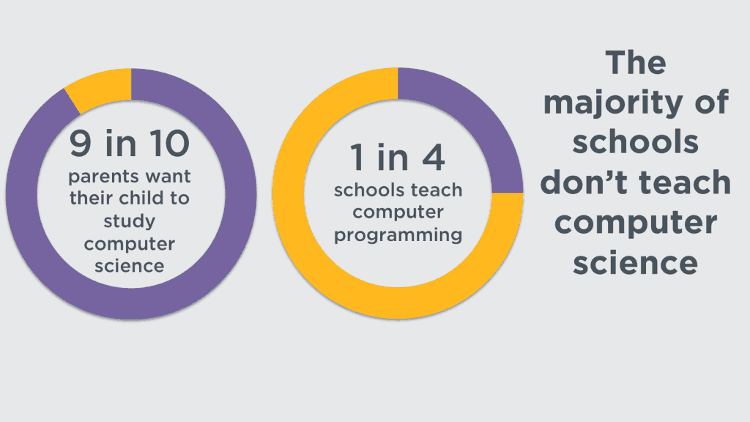4 Myths To Bust On The Road to “Computer Science For All” Success

By Grant Hosford
Earlier this year, President Obama announced his landmark “CS for All” initiative. At its core is $100 million available now for expanded computer science education in K-12 schools and a bill that would deliver $4 billion in computer science education funding to the U.S.
Over the coming months there will be important debates about what programs will best deliver on the promise of this plan. Should the bulk of the money go to teacher training? Hardware and software for schools? Curriculum? Lots of smart people who are incredibly passionate about educating kids will debate these points and help shape what CS for All actually delivers.

However, the REAL battle ahead relates to attitudes that need to change. Professional development and infrastructure investments are critical but will only make a real difference if we attack the following antiquated beliefs that hold our current educational system back.
- All new educational approaches require thorough study and rigorous assessment
- Our current system is fantastic so change should be incremental
- Teachers can only handle a little change at a time
- Coding = Computer Science
Belief #1: All new educational approaches require thorough study and rigorous assessment.
Most jobs today, at least in America’s service oriented economy, involve working in teams and using technology to increase productivity. This is our present reality, not some distant future, yet our educational system still focuses most of its energy on individual projects, individual assessments and old fashioned curriculum focused on the memorization of facts. We don’t need a University study to know that kids today should be learning how to problem solve, how to collaborate and how to use technology to bring their solutions to life.
Belief #2: Our current system is fantastic so change should be incremental.
Our current public educational system is broken, especially in neighborhoods that need good public education most. My family is fortunate to live in an incredible school district that is MOSTLY very progressive. Even K-5 students use technology frequently, many projects are team based and there are interesting and affordable after school programs.
Even so, some of the educational practices in our district are shockingly outdated. Earlier this year I found out my daughter’s 3rd grade class spends several hours every week practicing cursive writing. AHHHHHHH! Are you kidding me? When my daughter graduates from high school in 2025 she probably won’t even type! She’ll dictate 80% of her work to her phone or some other mobile device and her handwriting won’t matter to anyone–ever! The hours spent on handwriting could be spent on robotics, drama, computer science, music or entrepreneurship – all things with much more long-term value than handwriting.
Belief #3: Teachers can only handle a little change at a time.
The pervasive myth that teachers are lazy and can’t handle a lot of change is both false and dangerous. After personally working directly with hundreds of teachers around the U.S. this past year, I can definitively say that the average teacher is passionate, dedicated and very willing to try new things. However, if we want teachers to adopt practices more relevant to 21st century careers, we must be willing to give them permission to drop some old parts of the current curriculum and support them in a quest for new methods. That means professional development, workshops, mentors, etc.
Belief #4: Coding = Computer Science
Many people, the media included, have come to believe that computer science is mainly about writing code but code is just one element of a much larger subject. Computer science is really about logical problem solving and a set of useful rules and tools for breaking problems down. Coding is to computer science as a telescope is to an astronomer, and it’s just one of many tools available to a computer scientist.
While most people won’t love or be especially good at writing code, everyone can benefit from being a better and more creative problem solver. And creating a world of problem solvers is much too important to sacrifice to antiquated thinking about education.
So, what can you do as a parent or teacher? Demand that your school administrators implement computer science and project based educational approaches RIGHT NOW. Demand that teachers are supported during the change. Demand that computer science be made a meaningful part of subjects like math, history and language arts so kids become adept at using computers to solve problems.
If you are interested in learning more, check out these resources for parents and teachers:
- Code.org (K-12) Resources for Promoting CS and Hour of Code
- Exploring Computer Science – Why Computer Science is a Civil Rights Issue
- Teach for America STEM Initiative
- Globaloria – computer science and games design for Grades 7-12
- The Foos – computer science and game design for K-5
Let’s move beyond the familiar and get to the core of what CS for All really means. Let’s build a nation of collaborative problem solvers who attack issues with the most advanced technology available to them. That is what CS for All is truly about!
For more, see:
- Do Your Kids Need to Learn to Code? YES! But Not for the Reasons You Think
- 10 Coding & Computer Science Blogs to Bookmark
- Hey Mom, Can We Code This Weekend?
Grant Hosford is co-founder & CEO at codeSpark, Inc. Follow him on Twitter: @codesparkceo.
Stay in-the-know with all things EdTech and innovations in learning by signing up to receive the weekly Smart Update.







0 Comments
Leave a Comment
Your email address will not be published. All fields are required.